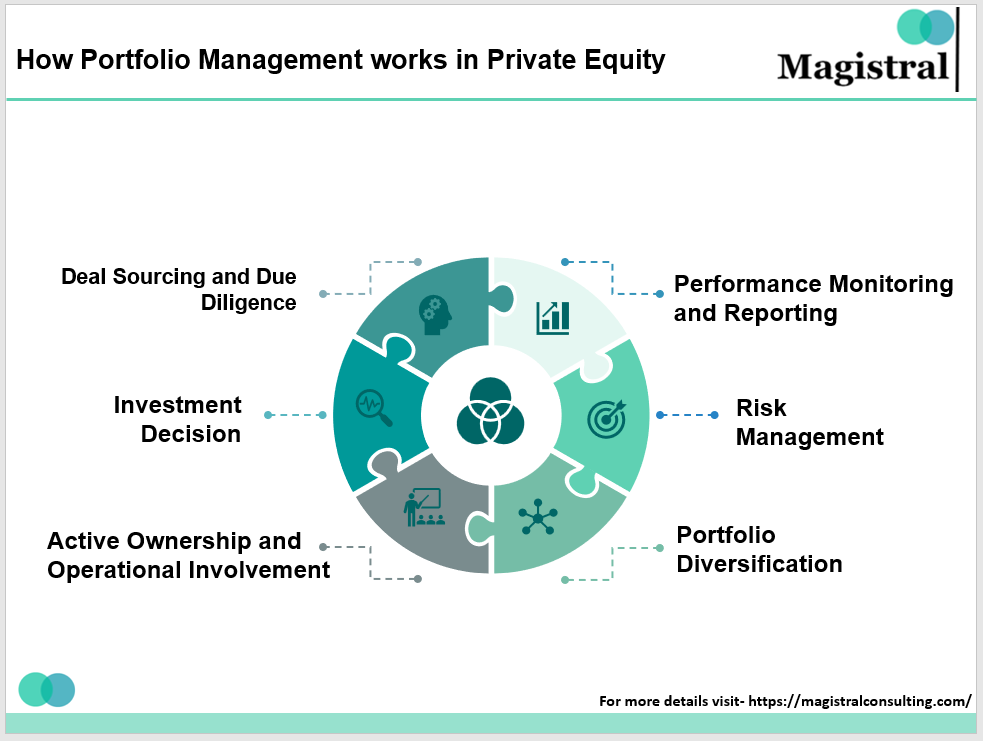Investment portfolio management is on the cusp of a new era defined by technology, data, and scale.
AI is at the heart of this transition, how portfolios are built, how risk is managed, and how investment execution is conducted. The growth of the robo-advisory market is a great example of AI democratizing sophisticated investment tools.
As investors seek greater personalization of service, transparency, and sustainably produced efficacious results. It is apparent that firms actively transitioning investment via AI are placing themselves at an advantage over the competition.
Investment Portfolio Management: Market Overview
The global asset management sector, which encompasses all investment portfolio management. It is evolving at an extraordinary growth rate. The market is expected to be around USD 12,741.10 billion by 2034. This reflects a compound annual growth rate (CAGR) of 33.95% from 2025 to 2034. This evolving trajectory illustrates the growing institutionalization of wealth and the increasing reliance on professional money management to generate the best returns, while managing risk in an ever-changing financial landscape.

Investment Portfolio Management: Market Overview
North America is at the forefront with 39.14% of the global assets under management, taking advantage of an established capital market. It involves institutional investors and an increasing proportion of high-net-worth investors. This region will continue to lead the market while growing at an impressive CAGR of 33.98% through 2034. In addition, emerging economies in the Asia-Pacific and the Middle East are quickly improving. It is driven by increasing income levels, savings, and levels of participation within capital markets.
For portfolio management professionals, this data suggests two strategic realities. First, the competition and service landscape is growing at an accelerated pace, requiring firms to efficiently scale. It also requires an open digital infrastructure, and for them to distinguish their investment offerings. Second, the growth tailwind is favorable for firms that are innovative, specifically those that are using AI-driven analytics. They also use ESG embedded investment models, and exposure to alternative asset classes like private equity, infrastructure, and sustainable funds will most likely secure an outsized share of future flows.
In conclusion, investment portfolio management exists in an incredibly fast-growing ecosystem. The future of the industry will most likely be shaped by technology adoption, outsourcing efficiencies, and strategic scale. Firms seek to help fulfill the complicated investment objectives of institutional and individual investors.
Investment Portfolio Management: Key Investor Behavior Trends in 2025
Investor behavior in 2025 is driven by the demand for personalized, low-cost, and diversified portfolios. It is shaped by technology developments (especially AI), sustainability goals (ESG), and macroeconomic uncertainty.
Rise of the Individual Investor and Democratization
Retail investing has surged since 2023, with younger and lower-income individuals entering the market earlier in their lives. This is better than prior generations because of readily available low-cost digital investing platforms and robo-advisors.
Focus on Cost and Passive Investing
The low-expense fund appetite remains strong, with passive ETFs (Exchange-Traded Funds) consistently earning the largest share of inflows. It is at the expense of traditional active mutual funds.
Growing Demand for Alternatives
To develop diversification as well as seek higher, uncorrelated returns in a volatile and uncertain landscape, investors are actively pursuing alternative investments like private equity, private credit, infrastructure, and real estate.
Prioritizing Sustainable (ESG) Investing
Environmental, Social, and Governance (ESG) factors have transitioned from niche to attending to the core of the investment implementation framework. This is because investors, across the spectrum, retail and institutional, seek the ability to make an impact and maintain resilience over the long term.
Influence of Technology and Data
Investors are examining available market data through various digital platforms and social media. This may impact behavior, such as “trend-chasing” or “dip-buying.” Therefore, new entrants into the market will require educational opportunities to enhance financial literacy.
Behavioral Biases and Volatility Management
Although information is widely available, psychological biases, such as loss aversion and herd mentality, still influence investor decisions and actions, especially in uncertain and volatile markets.
Investment Management Adaptation
Investment management firms are adapting their investment portfolio management process by:
Integrating AI and Digital Tools
Managers are incorporating AI and Machine learning into their investment management framework, from predictive analytics, personalized client journeys, operational efficiencies, and improved risk management.
Offering Hybrid Solutions
Investment firms are creating hybrid strategies that combine the efficiency and cost savings of passive investing with the ability to generate alpha (returns above benchmark) through active management in the ETF wrapper, for example.
Expanding Product Suites
Managers are increasingly diversifying product offerings into profitable, higher-margin products in alternative investments and more sustainable solutions to address evolving client preferences.
Enhancing Client Education
Aware of the influx of new investors into their firms and the greater complexity of new products, firms are beginning to prioritize educational content to build client trust in the firm and help measure the suitability.
Focusing on Risk and Regulation
Firms are focusing their efforts on potential technology-induced risk management and cybersecurity in the context of new regulatory environments involving complex investments, while fostering trust with investors.
AI in Investment Portfolio Management
Artificial intelligence (AI) has moved well beyond pilot projects in investment portfolio management and is now becoming a strategic enabler across portfolio construction, risk management, and trade execution. A survey found that 91% of investment managers are either using (54%) or planning to use (37%) AI in their strategies.

AI in Investment Portfolio Management
Simultaneously, the robo-advisory segment-one of the most visible AI-enabled delivery models, is growing at a strong clip. The global robo-advisory services market is estimated at ~USD 14.29 billion in 2025 and expected to reach ~USD 54.73 billion by 2030, implying a CAGR of approximately 30.8% between 2025 and 2030.
Real-time, data-driven decision-making
AI systems will process large amounts of data- market ticks, economic releases, alternative data (satellite imagery, consumer sentiment). Its done using machine learning to identify patterns faster and allow for more real-time adjustments to portfolios. This is better than traditional approaches based on historical datasets or human judgement.
Automated asset-allocation & rebalancing
AI models will be able to monitor portfolios 24/7 and support investment portfolio management, consider the risk-return balance of the portfolio. They also trigger a rebalance or tactical move based on incremental market changes or investors’ risk objectives. AI solves the manual bottlenecks while minimizing the time-sensitivity of decisions between market events.
Enhanced risk-management
Machine learning tools provide finer granularity on forward-looking risk- for example, identifying early stress in the market, liquidity shocks, or behavioural changes in correlations, which allows the portfolio manager to take action in a proactive rather than reactive manner.
Implications for Investment Portfolio Managers
AI is increasingly becoming a strategic imperative rather than an optional enhancement in investment portfolio management.
Scalability & cost-efficiency
Artificial intelligence systems lessen dependence on human resources or repeating self-contained tasks, allowing firms (both institutional and outsourced) to increase operational scale, while increasing accuracy and lowering error.
Competitive differentiation
As competitors continue to integrate artificial intelligence into their systems or workflows, the firms that will develop and establish a competitive advantage will be able to marry their operational workflow with artificial intelligence.
Data & infrastructure readiness
The establishment and management of a robust data pipeline to realise the value of artificial intelligence will be paramount to successful implementation, along with algorithmic oversight, model governance, transparency, and regulation.
Evolving roles of humans
The manager’s role in investment portfolio management is evolving from exclusively execution to more strategic roles. This includes model framework selection; interpretation of artificial intelligence, and use of judgment calls in situations where models still will struggle. The oversight of the ethics or control frameworks of artificial intelligence.
Risk of lagging if no adoption
Companies that are slow to adopt could not only lag in efficiency but also in the quality of insights that the process produces. AI generally facilitates faster turnaround times or a broader reach across data. So the laggards will possibly incur opportunity costs in investment portfolio management.
Magistral’s Services for Investment Portfolio Management
Magistral Consulting delivers comprehensive assistance throughout the investment portfolio management process.
Portfolio Research and Strategy Development
Magistral’s analysts will conduct thorough and original fundamental and quantitative research. It helps to identify your investment opportunities across sectors, securities, and themes. We assist with the creation of asset allocation strategies across equities, fixed income, alternatives, and ESG portfolios. This is for investment portfolio management.
Portfolio Monitoring and Rebalancing Support
We continually monitor portfolios to evaluate performance against benchmarks and investment objectives. They are together with forward-looking risk monitoring, exposure analysis, and performance attribution. Magistral will also provide recommendations for rebalancing the portfolio and provide you with dashboards for performance analytics built for your decision-making process.
Financial Modeling and Valuation
Our team designs sophisticated valuation models, including DCF, comparable company analyses, and precedent transactions. It is to continue assisting portfolio managers with assessing fair value.
ESG and Thematic Investment Support
Magistral supports the integration of ESG and sustainability investment themes into the portfolio approach. We carry out all of the screening associated with ESG, impact, and sustainability reporting. It is to ensure the portfolio reflects the mandate of the investor and aligns with whatever requirements have been established by regulation.
Operations and Reporting Outsourcing
We operate back-office functions, including trade reconciliation, data management, client reporting, and any other operational needs. The outsourcing model from Magistral supports accuracy, regulatory compliance, and scalability. It is for portfolio managers to have more time to generate alpha and engage with clients.
About Magistral Consulting
Magistral Consulting has helped multiple funds and companies in outsourcing operations activities. It has service offerings for Private Equity, Venture Capital, Family Offices, Investment Banks, Asset Managers, Hedge Funds, Financial Consultants, Real Estate, REITs, RE funds, Corporates, and Portfolio companies. Its functional expertise is around Deal origination, Deal Execution, Due Diligence, Financial Modelling, Portfolio Management, and Equity Research
For setting up an appointment with a Magistral representative visit www.magistralconsulting.com/contact
About the Author

Prabhash Choudhary is the CEO of Magistral Consulting. He is a Stanford Seed alumnus and mechanical engineer with 20 + years’ leadership at Fortune 500 firms- Accenture Strategy, Deloitte, News Corp, and S&P Global. At Magistral Consulting, he directs global operations and has delivered over $3.5 billion in client impact across finance, research, analytics, and outsourcing. His expertise spans management consulting, investment and strategic research, and operational excellence for 1,200 + clients worldwide
FAQs
What is investment portfolio management?
How is the investment portfolio management market growing?
What are the key trends shaping investor behavior in 2025?
How is artificial intelligence (AI) changing investment portfolio management?


